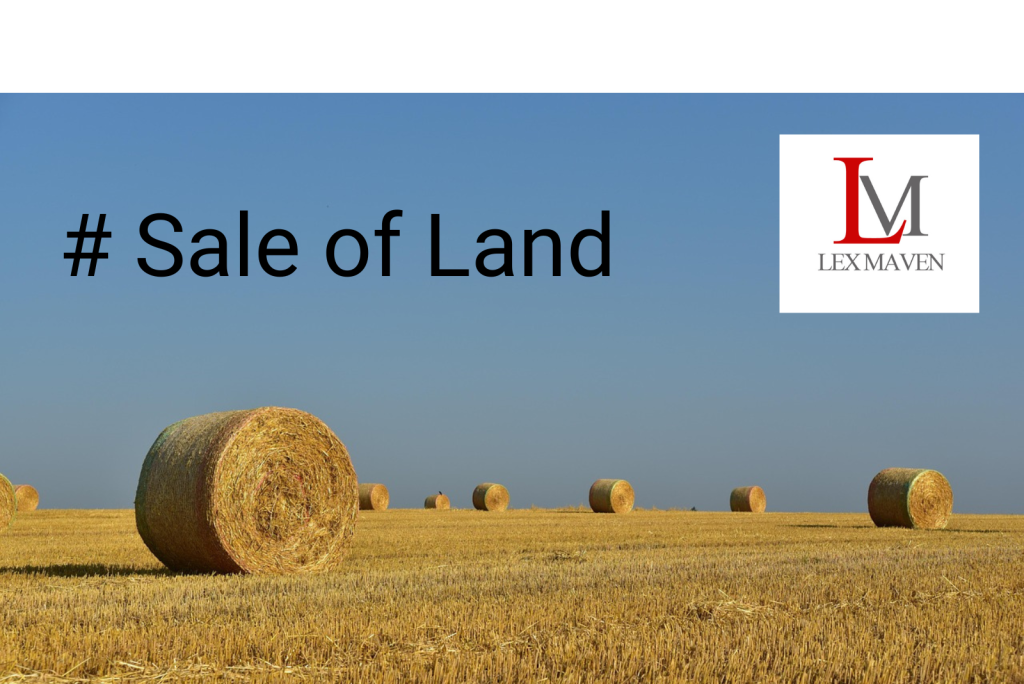Machhindranath (Deceased) through LRs v. Ramchandra Gangadhar Dhamne & Ors. | Civil Appeal @ SLP (C) No. 7728 of 2020 | Decided on: 02 June 2025
In a significant ruling, the Supreme Court of India clarified the legal position on land transactions made by borrowers of Co-operative Societies while a charge over the land remains unsatisfied. The Court dismissed the appeal filed by the legal representatives of the original plaintiff, Machhindranath Tarade, seeking possession and reconveyance of agricultural land alienated under a charge to a Co-operative Society.
🧾 Background
The dispute arose over 15 acres and 17 gunthas of ancestral agricultural land in Village Kendal Bk., Taluka Rahuri, District Ahmednagar, Maharashtra. The original plaintiff had obtained a loan from a Co-operative Society and created a charge over the suit land under Section 48 of the Maharashtra Co-operative Societies Act, 1960.
Due to financial constraints, he executed a registered sale deed in favour of his nephew/son-in-law (defendant no.1) on 2 November 1971 for ₹5,000. Simultaneously, a ‘Ram Ram Patra’ (reconveyance deed) was also executed stating that the land would be returned upon repayment of ₹5,000. Later, defendant no.1 sold a part of the land to defendant no.2 on 15 July 1972 for ₹30,000. The plaintiff filed a suit in 1973, which led to a prolonged litigation trail ending in the Supreme Court.
⚖️ Key Legal Issues
- Whether the sale by the plaintiff, while the Society’s charge subsisted, was void under Section 48(e) of the Act?
- Can the original borrower (plaintiff) seek nullification of a transaction based on violation of Section 48?
- Does subsequent release of charge by the Society validate prior alienation?
- Was the transaction one of sale or a conditional mortgage/reconveyance arrangement?
- Did defendant no.2 qualify as a bona fide purchaser without notice?
🧩 Court’s Analysis
✅ On Section 48 Violation
The Court acknowledged that the sale on 2 November 1971 was in contravention of Section 48(d), which prohibits alienation of charged land until dues are cleared. However, it emphasized:
“The right to sue or get a declaration qua any alienation rests with the society. The loanee who breached Section 48 cannot invoke it for personal benefit.”
Thus, the plaintiff could not claim that his own transaction was void when the Co-operative Society neither objected nor initiated any action.
✅ Sale Not Void Ab Initio
The Court distinguished between “void” and “voidable” transactions. It concluded that while Section 48(e) uses the term “void,” its enforcement must be sought by the society. The sale was therefore voidable, not void ab initio, and valid unless set aside at the instance of the society.
✅ Reconveyance Document Unreliable
The unregistered ‘Ram Ram Patra’ was found unreliable due to the absence of:
- Registration,
- Proper stamp duty,
- Any time limitation,
- Interest/escalation clause.
This undermined the plaintiff’s claim that the transaction was merely a loan-backed security.
✅ Subsequent Release of Charge by Society
The Society’s formal release of the charge in 1973, after repayment, did not retrospectively validate or invalidate earlier transactions. However, since the Society suffered no harm and raised no objection, the transaction stood.
✅ Defendant No.2 – Bona Fide Purchaser
The Court upheld the status of defendant no.2 as a bona fide purchaser without notice, having relied on the registered sale deed of 1971, which did not reflect any encumbrance.
🏛️ Conclusion
The Supreme Court declined to interfere with the findings of the High Court, observing:
“A person cannot be permitted to benefit from his own wrong. The law does not reward one who violates statutory provisions and seeks relief on that basis.”
The appeal was dismissed, and the decree passed by the Trial Court in favour of the plaintiff was not restored.

